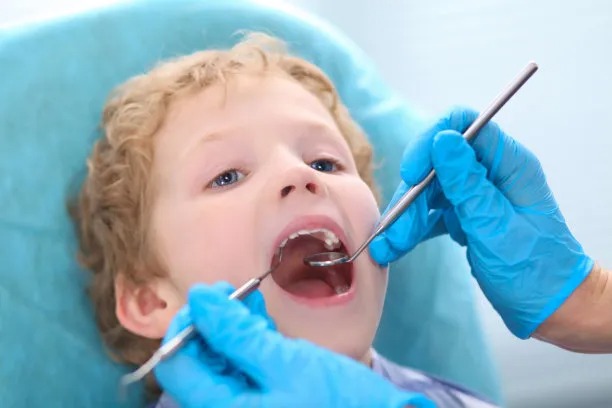Summary: Periodontal disease is a prevalent oral health issue that extends its impact beyond the mouth, significantly affecting overall health. This article examines the relationship between periodontal disease and various systemic health conditions, including cardiovascular disease, diabetes, and respiratory disorders. Additionally, the discussion highlights the treatment options available for patients worldwide, emphasizing the importance of early detection and intervention. It provides insights into the effectiveness of both conventional and emerging treatments. By understanding the links between periodontal health and overall well-being, individuals can take proactive steps to mitigate risks and improve their health.
1. The Link Between Periodontal Disease and Systemic Health

Periodontal disease is more than just an oral health concern; it can lead to serious systemic health problems. Studies have established a connection between periodontal disease and cardiovascular disease, indicating that the inflammation caused by gum disease can contribute to the clogging of arteries and heart health issues. Bacteria from infected gums can enter the bloodstream, exacerbating existing heart conditions or even leading to new ones.
Furthermore, individuals with diabetes are particularly vulnerable to periodontal disease. High blood sugar levels can impair blood flow and hinder the body’s ability to fight off infections, making it easier for gum disease to develop. Conversely, the presence of periodontal disease can complicate diabetes management, creating a challenging cycle that affects both oral and overall health.
Additionally, periodontal disease has been linked to respiratory problems. The bacteria associated with gum disease can be inhaled into the lungs, causing infections and exacerbating existing respiratory conditions, such as chronic obstructive pulmonary disease (COPD). The systemic implications of periodontal disease underscore the need for greater awareness and preventive measures.
2. Recognizing the Symptoms of Periodontal Disease
Awareness of the symptoms of periodontal disease is crucial for early intervention. Common signs include swollen or bleeding gums, persistent bad breath, and loose teeth. However, many individuals may overlook these symptoms, attributing them to normal aging or other factors, which can lead to progressive damage if left untreated.
Regular dental check-ups are essential for early detection. Dental professionals can identify subtle signs of periodontal disease, even before symptoms become apparent to the patient. Early intervention can significantly alter the diseases trajectory, preventing severe complications and maintaining oral health.
Moreover, education about the risks and signs of periodontal disease can empower patients to seek timely treatment. Public health initiatives aimed at increasing awareness can play a significant role in reducing the prevalence of this condition globally.
3. Treatment Options for Periodontal Disease
Once diagnosed, periodontal disease can be managed through a variety of treatment options tailored to the severity of the condition. For mild cases, improved dental hygiene practices such as more frequent brushing and flossing may suffice. Professional cleaning by a dental hygienist can help remove plaque and tartar buildup, which is essential for stopping disease progression.
In more advanced cases, scaling and root planing might be necessary. This procedure involves deep cleaning below the gum line to remove bacteria and smooth the roots of the teeth, allowing the gums to heal and reattach. This non-surgical treatment can be highly effective in restoring periodontal health.
For severe cases, surgical options may be considered. Procedures like pocket reduction surgery or bone grafting can restore lost tissue and bone damage. Furthermore, recent advancements in regenerative techniques are showing promise in enhancing healing and tissue regeneration.
4. The Importance of Preventive Care and Lifestyle Changes
Preventive care is critical in combating periodontal disease and its repercussions on overall health. Regular dental visits, proper oral hygiene, and a balanced diet rich in vitamins and minerals can significantly reduce the risk of developing gum disease. Individuals should prioritize brushing at least twice a day and flossing daily, in addition to routine dental cleanings.
Lifestyle changes also play a vital role in maintaining periodontal health. Quitting smoking is one of the most beneficial actions individuals can take to improve their gum health, as smoking is a significant risk factor for periodontal disease. Additionally, managing stress and maintaining a healthy weight can also contribute to better oral health.
Ultimately, a comprehensive approach that combines preventive measures with early intervention can make a substantial difference in managing periodontal disease worldwide. Empowering patients with knowledge and resources can lead to improved health outcomes across populations.
Summary:
In conclusion, periodontal disease poses significant risks to overall health, linking it to multiple systemic conditions such as cardiovascular disease, diabetes, and respiratory disorders. Recognizing symptoms early and seeking appropriate treatment can dramatically alter the disease progression and enhance quality of life. By emphasizing preventive care and lifestyle modifications, individuals can take charge of their oral health while simultaneously protecting their overall well-being.
This article is compiled by Vickong Dental and the content is for reference only.
Vickong Dental
Vickong Dental is a large medical group established in Hong Kong in 2008 by professors from well-known medical universities in Guangdong and Hong Kong, as well as medical doctors from key national '985' universities (including Master's supervisors and senior professors). The chain of branches brings together expert dentists with PhDs and Master's degrees from Hong Kong and Mainland China, committed to providing high-quality dental treatment.
"Vickong Dental Practices the University Motto of 'Healing and Serving Society,' with a Stable Operation for Sixteen Years. It Has Been honored with Hong Kong Enterprise Leaders's Choice,' and is a Global Trusted Implant Center for the Nobel Implant System. Recommended by Hong Kong Metro Broadcast and Guangdong Television, it Serves Customers from Over Thirty Countries and Regions, Gaining the Trust and Favor of Citizens from the Guangdong-Hong Kong-Macau Greater Bay Area and Surrounding Cities.

Thousands of customers' unanimous praise
The most recognized and highly recommended dental service by customers in the Guangdong-Hong Kong-Macau Greater Bay Area
We Ensure You Receive Detailed Care and Attention Here
Hong Kong standards, Shenzhen prices, Your Trusted English-speaking dentists

Vickong Dental Medical-Grade Instrument Disinfection Process
Vickong Dental Medical-Grade Instrument Disinfection Process

Vickong Dental Chain: A Warm and Comfortable Environment for Treatment






Appointment Hours

Q&A
Why choose Vickong Dental?
Vickong Dental practices the university motto 「Medicine to Benefit Society」, with each branch bringing together highly qualified dentists with doctoral and master’s degrees from Hong Kong and the Mainland, and has maintained seventeen years of steady operation。Recipient of 「2024 Hong Kong Enterprise Leaders Brand」, 「2025 Hong Kong Enterprise Leaders Brand」, a Nobel Biocare Global Trusted Implant Center, and a brand recommended by Metro Radio Hong Kong and Guangdong TV。
To date, we have served customers from more than thirty countries and regions,earning exceptionally high word-of-mouth recognition and trusted recommendations from residents across the Guangdong-Hong Kong-Macao Greater Bay Area and surrounding cities
We have eight major branches in Zhuhai、Shenzhen,and a consultation and service assurance center in Hong Kong,so you can book a free consultation at any time for any questions,which is very reassuring.
If I do not accept the quotation after the CT scan, will I be charged??
No! As long as the actual treatment has not started, you will not be charged any fees.
Will there be any additional charges during the treatment process?
No, there won’t be any additional charges. Before treatment begins, we will clearly explain the treatment plan and its corresponding fees. Only after the patient agrees and signs the consent form will we proceed with the dental service.
Can I pay in Hong Kong dollars?
Yes. Vickong Dental accepts payment in Hong Kong dollars. The amount will be converted based on the exchange rate of the day, and the applicable rate will be clearly communicated to you in advance.
Can I reschedule my appointment at any time?
Yes. Please contact us via **WeChat** or **WhatsApp** as early as possible, providing your original appointment time and details, along with your preferred new date and time slot for rescheduling.













